Filter by
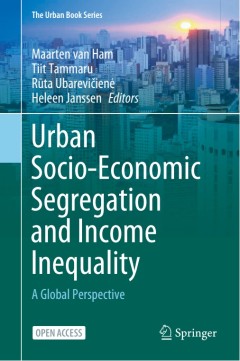
Urban socio-economic segregation and income inequality : a global perspective
This open access book investigates the link between income inequality and socio-economic residential segregation in 24 large urban regions in Africa, Asia, Australia, Europe, North America, and South America. It offers a unique global overview of segregation trends based on case studies by local author teams. The book shows important global trends in segregation, and proposes a Global Segregati…
- Edition
- -
- ISBN/ISSN
- 9783030645694
- Collation
- ix, 523p. : ill.
- Series Title
- -
- Call Number
- 339.2 URB u
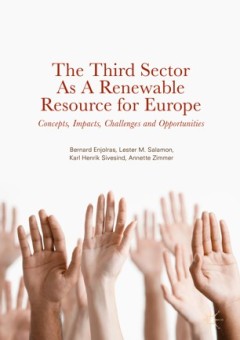
The third sector as a renewable resource for Europe : concepts, impacts, chal…
This book provides a critical account of the third sector and its future in Europe. It offers an original conceptualization of the third sector in its European manifestations alongside an overview of its major contours, including its structure, sources of support, and recent trends. It also assesses the impact of this sector in Europe which considers its contributions to European economic devel…
- Edition
- -
- ISBN/ISSN
- 9783319714738
- Collation
- xv, 196 p.
- Series Title
- -
- Call Number
- 361.61 ENJ t
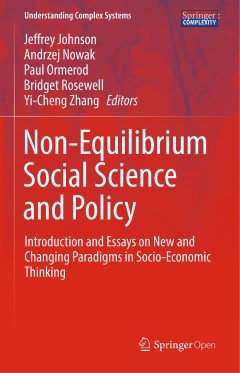
Non-equilibrium social science and policy : introduction and essays on new an…
The overall aim of this book, an outcome of the European FP7 FET Open NESS project, is to contribute to the ongoing effort to put the quantitative social sciences on a proper footing for the 21st century. A key focus is economics, and its implications on policy making, where the still dominant traditional approach increasingly struggles to capture the economic realities we observe in the world …
- Edition
- -
- ISBN/ISSN
- 9783319424248
- Collation
- viii. 232p. : ill.
- Series Title
- -
- Call Number
- 330.01 NON n
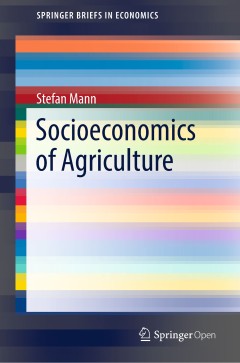
Socioeconomics of agriculture
This open access book applies for the first time emerging concepts of socioeconomics to analyse an economic sector, namely agriculture. It considers the rational choices of all actors in the system (just as agricultural economists do) and their cultural preferences and constraints (just as rural sociologists do). Socioeconomic concepts are subsequently used to structure agricultural issues with…
- Edition
- -
- ISBN/ISSN
- 9783319741413
- Collation
- vii, 106p. : ill.
- Series Title
- -
- Call Number
- 338.1 SOC s
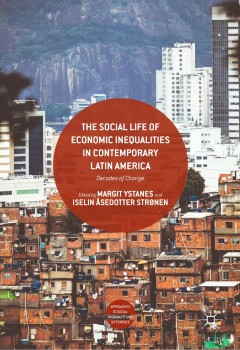
The social life of economic inequalities in contemporary Latin America : deca…
This book is open access under a CC BY 4.0 license. This edited volume examines how economic processes have worked upon social lives and social realities in Latin America during the past decades. Through tracing the effects of the neoliberal epoch into the era of the so-called pink tide, the book seeks to understand to what extent the turn to the left at the start of the millennium managed to …
- Edition
- -
- ISBN/ISSN
- 9783319615363
- Collation
- xix, 289p. : ill.
- Series Title
- -
- Call Number
- 305.8 SOC s
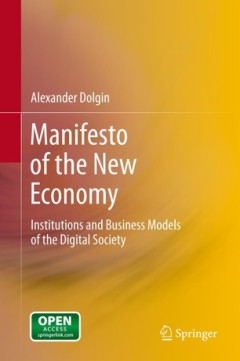
Manifesto of the new economy : institutions and business models of the digita…
The book describes the main directions for the development of the digital society. The author angles its book to those who are interested to know what would replace search engines, and how social networks would evolve; what profit can be made of different forms of informational collaboration (crowdsourcing, collaborative filtering). And, the main thing, how it will influence the structure of th…
- Edition
- -
- ISBN/ISSN
- 9783642212772
- Collation
- vi, 145p. : ill.
- Series Title
- -
- Call Number
- 330 DOL m
 Computer Science, Information & General Works
Computer Science, Information & General Works  Philosophy & Psychology
Philosophy & Psychology  Religion
Religion  Social Sciences
Social Sciences  Language
Language  Pure Science
Pure Science  Applied Sciences
Applied Sciences  Art & Recreation
Art & Recreation  Literature
Literature  History & Geography
History & Geography